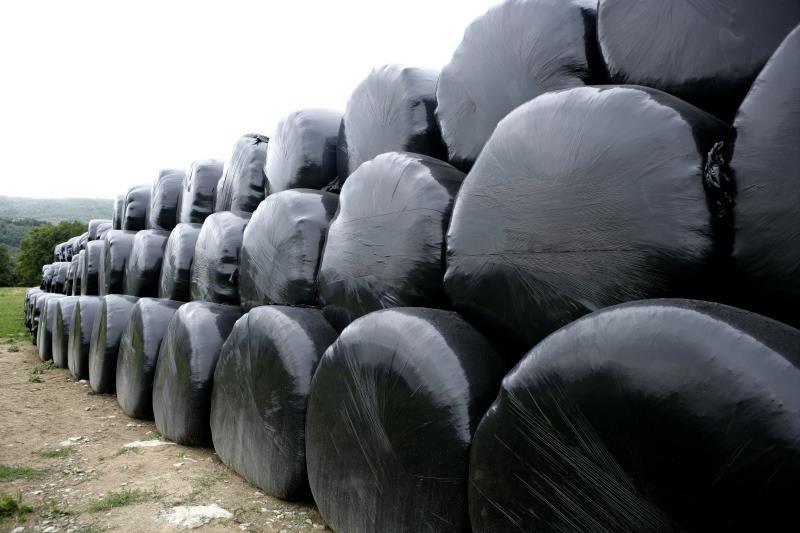The Environment Agency (EA) says there has been a significant increase in contaminated agricultural plastic waste being intercepted at shipping ports. This year the EA has intercepted numerous illegal shipments of waste, including silage wrap, which were destined for countries around the world.
In order to legally export contaminated agricultural plastic waste including silage wrap, farming businesses in the UK must get prior consent from both the source country and its destination, alongside all countries through which it travels. These wastes cannot be exported unless the permission of the EA and applicable overseas authorities has been obtained in advance.
NFU environment policy adviser Philippa Arnold said:
“Our members use a wide range of plastic products, such as plastic sheeting and films, as well as plastic pots and trays, and they handle plastic packaging waste such as fertiliser bags or compost bags.
“Farmers may keep plastic waste for up to 12 months before removal from the farm, storing different types separately such as dirty plastic films and plastic pesticide containers. Many plastic wastes such as plastic wraps, sheeting and films are bulky and may be soiled – additional guidance for farmers on the handling, segregation and storage of plastic wastes before they are removed from the farm has helped to improve collection and recycling.
“The NFU urges all members to check the Environment Agency website to ensure that their plastic waste collector is a registered waste carrier and to obtain a waste transfer note with an accurate description of the waste as proof of collection. We have a legal duty of care when disposing of our waste, so don’t be afraid to ask where the waste is going or ask for evidence that the waste company is authorised to store or treat it.”
Steps to follow:
To ensure that waste is handled properly through to its final recovery or disposal point, the EA recommends that farmers and agricultural businesses should always:
- use the EA website to check that the waste firms they are dealing with have the necessary authorisations for carrying, dealing or brokering waste;
- ensure the waste is accurately described on waste transfer documentation;
- ask where the waste is going;
- ask for evidence that the waste company is authorised to store or treat it and what they intend to do with the waste afterwards.
Packaging regulations apply to certain plastic packaged products used on-farm, i.e. pesticide containers, fertiliser bags and seed bags. Under these regulations, producers must pay towards the costs of collection and recycling of packaging waste.
The options for recycling agricultural non-packaging plastics (i.e. silage wrap, baler twine, crop cover, polytunnel film) are more limited because they are not subject to such legislation and because the plastics are difficult to recycle due to contamination. Improving availability of facilities and minimising costs for recycling or disposal of non-packaging plastics therefore needs to be addressed.
A map of plastic waste collectors accredited by the Green Tractor scheme can be found here.
More from NFUonline:

